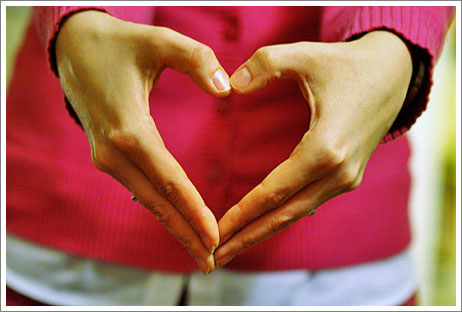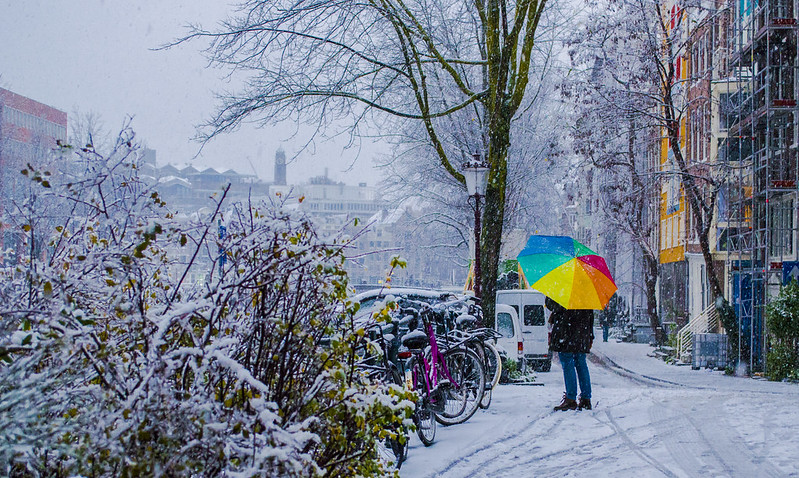Homesickness can be a problem during the holidays, even if it hasn’t been at any other time of the year. Au pairs often miss their friends and family, familiar places, and their own traditions and customs. The holiday activities in the United States seem, and may actually be, different just at a time when an au pair would welcome something familiar.
It is common for au pairs’ emotions to be close to the surface during the holidays. Her highs are higher, her lows are lower. The enormity of what she has done–actually living in another country (which is an amazing thing when you think about it!)–hits her and throws her into a self-protective mode.
Au Pairs, there are things you can do to reduce homesickness during the holidays. It is important to balance your activities to feel connected to your family back home and your traditions but also embrace new customs and experiences here in the U.S.

Lina and her friend enjoying one of the most popular celebrations of the year in Colombia. “Every December 7, Colombian families get together with very close friends to light several candles thinking about wishes for the coming year such as health, prosperity, love and happiness. It is also very traditional to share typical food from the region, and what can never be missing is wine and cookies.”
Share your traditions with your host family and friends. Each country has its own special holiday customs. Being friends with other au pairs, you can not only learn about the U.S. but also how other countries celebrate. When you talk with your family back home, you can share some of the new holiday experiences you are having. That can help lessen the feeling of missing out on moments at home by reminding you that you are here in the U.S. for a short time and you are making memories that will last a lifetime.
Host Parents can help her through this unfamiliar territory by talking to her about what your specific family activities will be (gifts, meals, visitors, religious services, in-home traditions, or none of these, as the case may be.) In the spirit of cultural exchange, ask her if she has any favorite holiday traditions or foods that you might be able to incorporate into your family’s celebration of the season. Let her know what you will be doing when you will be doing it, and what she can expect. Talk to her about what has to be accomplished and get her involved and interested. Don’t expect her to just “know” what needs to be done. Give her some clear, agreed-upon assignments. Make her feel a part of things. And, let her know her contribution is needed and appreciated.
Photo: Lina Cabeza Paez

 Almost everyone experiences culture shock and homesickness when they come to a completely new environment. Everything is different: the language, the food, and the people.
Almost everyone experiences culture shock and homesickness when they come to a completely new environment. Everything is different: the language, the food, and the people.
 1. Make Friends – Don’t wait for other au pairs to reach out to you, reach out to them. There are lots of other new au pairs who are feeling the same way you are right now. Set a goal to reach out to one of them each day. Some will respond and some will not. Don’t let that discourage you. No one will ever be mad at you for sending them a message to say hello or ask if they want to do something together. Make friends from various countries and you will also get a chance to practice your English skills together.
1. Make Friends – Don’t wait for other au pairs to reach out to you, reach out to them. There are lots of other new au pairs who are feeling the same way you are right now. Set a goal to reach out to one of them each day. Some will respond and some will not. Don’t let that discourage you. No one will ever be mad at you for sending them a message to say hello or ask if they want to do something together. Make friends from various countries and you will also get a chance to practice your English skills together. Homesickness can be a problem during the holidays, even if it hasn’t been at any other time of the year. Au pairs often miss their friends and family, familiar places and their own traditions and customs. The holiday activities in the United States seem, and may actually be, different just at a time when an au pair would welcome something familiar.
Homesickness can be a problem during the holidays, even if it hasn’t been at any other time of the year. Au pairs often miss their friends and family, familiar places and their own traditions and customs. The holiday activities in the United States seem, and may actually be, different just at a time when an au pair would welcome something familiar. The winter has it’s own kind of beauty, but when the days are short and it’s cold outside, some people feel less energetic or even sad. The cold weather can make you feel like staying indoors. For some au pairs, those conditions can cause homesickness to resurface.
The winter has it’s own kind of beauty, but when the days are short and it’s cold outside, some people feel less energetic or even sad. The cold weather can make you feel like staying indoors. For some au pairs, those conditions can cause homesickness to resurface. Almost everyone experiences culture shock when they come to a completely new environment. Everything is different: the language, the food, and the people.
Almost everyone experiences culture shock when they come to a completely new environment. Everything is different: the language, the food, and the people.